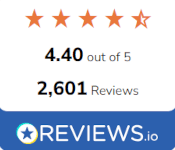THE BENEFITS OF OWNING A SECOND HOME
The concept of purchasing a second home is an exciting one but it can also be quite daunting. If you’re thinking about buying a second home, it’s important to weigh up the pros and cons of the adventure before setting off. By doing so, you’ll be able to confirm whether or not it’s the right move for you. As a home insurer, Homeprotect doesn’t offer tax or investment advice.
Is purchasing a second home the right move?
There are a number of reasons why people decide to buy a second home. You might buy-to-let as a tangible investment for your future: many people are opting to use rental income to augment their pension in retirement. Some choose to purchase a second house as a holiday or weekend home, providing an escape to the countryside whenever the mood takes them. Others might buy to renovate and sell, offering an opportunity for a quick pack-back, before reinvesting again elsewhere.
How to earn money from your second home
There are two ways that people might benefit from second home ownership, one being long-term investment and the other short-term. Long-term investments include buy-to-lets and holiday lets, while ‘fixer-uppers’ are (ideally) taken up on a short-term basis.
LONG-TERM INVESTMENT
Long-term second home investments will generally accumulate value over time, dependant on trends in property prices, but may also generate a rental income in the interim. There are a number of mortgage options available when buying-to-let that might help you to get the most from your investment, and are well worth investigating.
SHORT-TERM INVESTMENT
A short-term second home investment depends almost entirely on your ability to a) spot a bargain, and b) make sufficient improvements to raise the value enough to turn an immediate profit. The risk element with this kind of purchase is much greater than a long-term investment, as you are unlikely to see a particularly beneficial fluctuation in house prices over such a short period of time. If you are going to attempt to fix up a property, it helps to have contacts in the building trade to minimise your construction costs, and you must have the level of commitment required to see a project through.
SEASONAL TRADE
Unlike a full-time rental, holiday home letting rates are dependant on seasonal trade and are also completely reliant on the potential of their location as a draw for holiday makers. A house in a fantastic countryside location, furnished with all mod-cons and breathtaking views, can command high amounts in the holiday rental market. This is especially true as more and more people are looking to take a staycation at home while the economic climate levels out.
People who are being pushed into letting out of necessity rather than choice are finding that they can generate enough to pay the cost of keeping their second home, and a lucky few are finding that they can make a little more on top.
SHORT-TERM SCHEMES
Some holiday letting agents are offering flexible, short-term schemes allowing tenants to live in a property for between two and five months in an effort to bolster rentals during the off-season and to fill a market niche in the tenancy market (where most landlords insist on a minimum six month contract).
These schemes target specific groups of people that are usually unable to find short term housing solutions, such as those temporarily between homes, having major renovations done on their main home, workers in a given area on a limited time contract, and people looking for an extended holiday.
Non-financial benefits of owning a second home
Buying a second home for personal use can be a much more fulfilling investment, as the benefits extend beyond the financial. Having access to a holiday home can be seen as a lifestyle change. Your second home becomes your own private getaway, where you can escape the stress of work in more idyllic surroundings. If you choose carefully, you might also be able to rent-out your holiday home while you’re not using it. Holiday lettings may not generate a great deal of income with a small property portfolio, but with luck it will provide you with enough to maintain and manage your second home.
Tax considerations for second homes
There are a number of tax considerations to make if you own a second home, both in and outside of the UK. As a UK resident, you will become liable for capital gains tax when selling your second home, unless you spend a certain amount of time living in it where you can declare it as your primary residence. If you are a foreign national, or if your second home is outside of the UK, you will still have a number tax issues that you will need to research thoroughly before you make any purchase.





